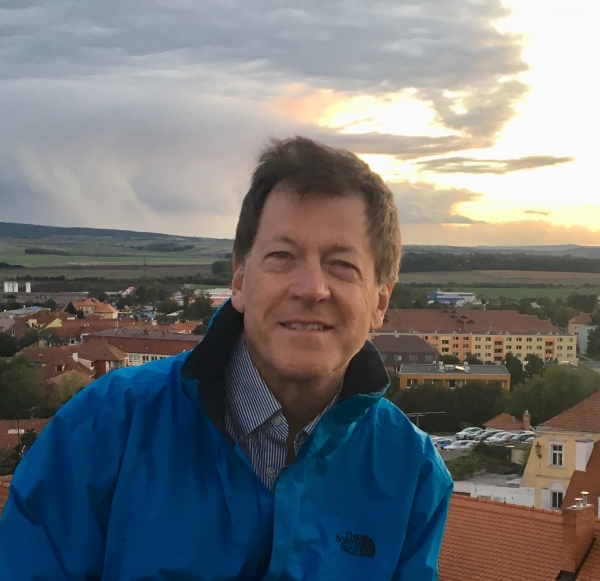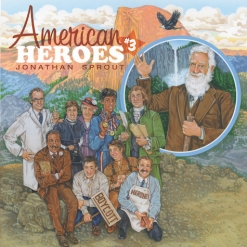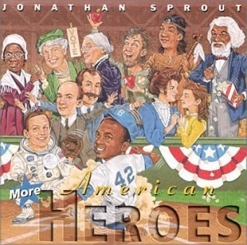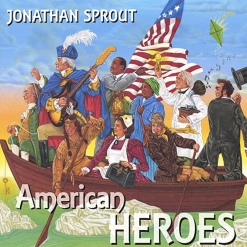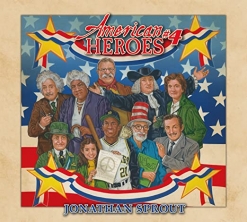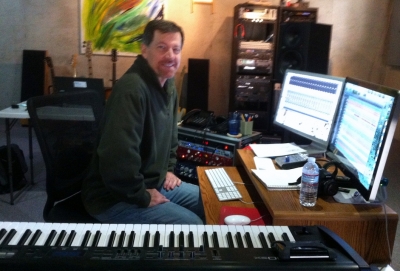I first came into contact with Jonathan Sprout and his
Force For Good organization in early 2020 when they sent me
Passions, the debut album by Force For Good. The more I explored what FFG was all about, the more intrigued I became. Jonathan Sprout founded FFG in 2016 with some very talented friends. From the homepage of their
website:
"OUR MISSION is to inspire and empower people. We create uplifting music and song-films that encourage personal and global well-being, happiness, and respect for the environment. We are optimists who promote peace, safety, equality, and compassion for all. We hope you’ll join us. Be the force that uplifts the doers of good.”
Along with the incredible music, I find their films to be extremely inspiring and beautifully done. FFG released their second album,
Innocence, earlier this year and it's even better than the first one. I decided it was time to get to know this group better and asked Jonathan to do an interview. Prepare to be inspired!
KP: Hi Jonathan! How are things in Pennsylvania today?
JS: It’s a bright, sunny day here, and my solar panels are quietly doing their magic, pushing electricity into the grid.
KP: You and Force For Good released your second album, Innocence, earlier this year and will be releasing the second short film that goes with it in April. Tell us a bit about the album and its message.
JS: Innocence has no lyrics, though it was created with the intent to relax and uplift. We think it makes a good Yoga/Meditation/Lower-the-Blood Pressure album. The films, of course, give meaning to the music.
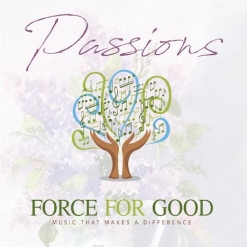
Click on album covers to go
to Kathy's reviews.
KP: The filmmaker of Force For Good is Rodney Whittenberg, an Emmy-winning composer and Emmy-nominated filmmaker whose art is intended to heal, empower and transform. How long have you been working with him?
JS: Rodney and I shared equally in the editing and directing of the 24 music videos (we call them song-films) we created. I first hired him to create a video with me in 2014 about Samantha Smith, America’s Young Ambassador for Peace, using the song “Powerful” I wrote with Dave Kinnoin that appeared on my American Heroes #4 album. Rodney and I spent several years creating our Force For Good song-films and completed most of them a year ago. He mentored me as a co-director and helped give me the confidence to film a lot of our pieces. I took a course on how to make movies using an iPhone (Steven Soderbergh does that) at the Omega Center in New York. Some of our films use stock footage, more so those from our first album, Passions. A decent amount of the Innocence clips I filmed in PA, NY and CA.
KP: Force For Good received eighteen film awards in 2020 from all over the world. That's really impressive! Are the films available on YouTube once they're released?
JS: Yes, our
YouTube page is where we share them once they’ve premiered. And, yes, I’ve been stunned by all the awards. To be clear though, we spent close to 800 hours in the editing room making these 24 films. The process of creating our FFG brand required several re-inventions of our video look and approach. We experimented a lot and received feedback from friends and associates. We constantly tweaked. We sometimes nearly-trashed, starting over with better ideas. You know how the creative process works. It took a long time for us to feel we’d taken these films as far as we could.
KP: What are some of Rodney's other projects that have won awards?
JS: He helped make a great film called Caregivers about the high burnout rate among those who serve the critical service of helping others – nurses, doctors, first responders, etc.. The film brings attention to the needs and remarkable gifts of these compassionate servants to humanity.
KP: The first short film that goes with
Innocence is "
Homeless" and it really moved me. How and where was that film made?
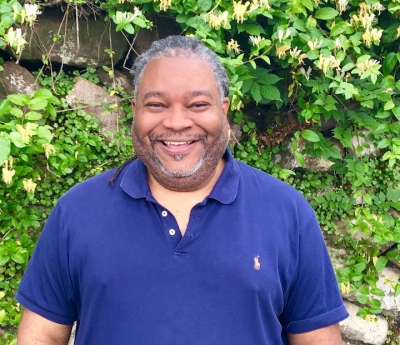
Rodney Whittenberg
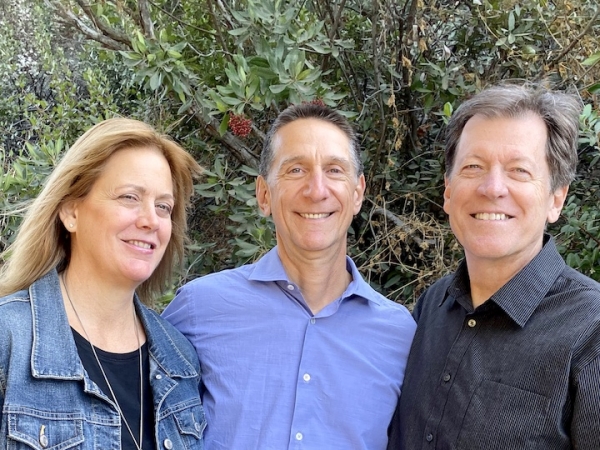
Hillary Black, Leslie Chew and Jonathan
JS: FFG co-visionary Hillary Black and I found
Elvis Summers while searching the web for heroes combatting homelessness in southern California. I decided to try to film homeless people on Skid Row there in L.A. after filming Elvis. We got a press pass to film at a big, beautiful gathering the day before Thanksgiving hosted by a Los Angeles community center. They had thousands of hungry people there and lots of celebrities. In the film, there’s a brief interview with Carolina, one of the dozens of Wells Fargo volunteers there to serve that day. I asked her why she was there and she wept as she explained that once, she had been on the other side of the giving, and she felt compelled to be there, to give back whenever she could. Rodney and I choked up every time we watched that interview.
KP: It's incredibly powerful! What is the second film?
JS: "Natural" premieres on April first. It sings the praises of nature and encourages people to get outside away from the world of screens. Ironically, we made this pre-COVID, long before we’d heard of “ZOOM Fatigue.”
KP: Will there be a film to go with every track? How often will they be released?
JS: Yes. Every two months we’ll premiere a film about topics including protecting the wilderness, ending hunger, promoting wind energy, promoting yoga, and reducing, reusing and recycling plastic. My favorite film is Reverence, about how important it us that our religions preach respect for one another, regardless of each other’s beliefs.It was partly inspired by Reverend Al Krass, a brilliant and compassionate activist preacher here in Bucks County, PA. Addressing a crowd of mourners shortly after September 11, 2001, he said religion is the primary cause of war. Of course, it had been “religion,” or rather, the misinterpretation of a religion that motivated terrorists to attack the World Trade Center and Washington, DC. I believe it is the misinterpretation of a lot of religions that motivates people to hate homosexuals, people of color, people from other cultures and people of other beliefs. Religion should be synonymous with love, tolerance, and acceptance.
KP: I'll be looking forward to seeing all of those.
Let's talk a bit about the Force For Good organization that you founded in 2016. What was the catalyst that brought the group of you together?
JS: Honestly, the tens of millions of Americans who voted for Donald Trump in November 2016 is what “inspired” me to ratchet up my level of citizenship. I’d spent 25 years researching, writing, performing and recording songs about American heroes. I’d performed thousands of concerts for children practically preaching about the importance of picking heroes who are honest and compassionate, leaders who understand their job is to serve, not to be served. The election results of 2016 showed me that a lot of people have been misinformed and misguided. So I decided, with input from a few close friends including Rodney Whittenberg, to turn my music into films that taught some of the lessons I’ve learned from the 40 amazing heroes I’ve researched. What would my heroes say and do today? The answers are what Rodney and I and others on the team have tried to communicate in the FFG song-films.
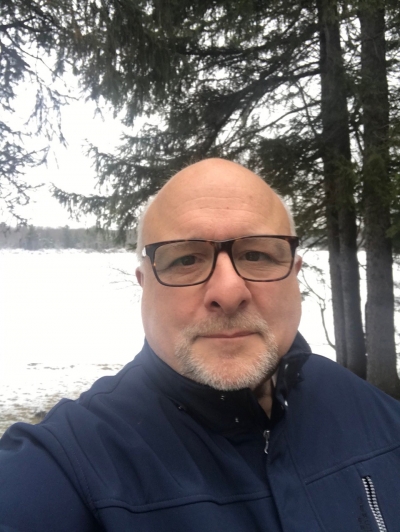
Joe Mennonna
KP: Is the group considered to be a non-profit or not-for-profit organization?
JS: Force For Good probably should be considered as a not-for-profit, as all the money we earn is going towards the project and nonprofit organizations at this time. I hope to obtain funding in the future.
KP: What is the focus of the organization?
JS: Well, we’re focused on making music and films that make a difference, that help improve things on Earth. God willing, we’ll someday turn a profit. Anybody know Bill and Melinda Gates?
KP: Really! How can people get involved with Force For Good?
JS: Join our once-every-two-month online events. We choose one of our films, interview an expert on the subject of the film, and beg for money, 100% of which goes to a designated charity. We’ve hosted two events so far and inspired more than $10,000 in donations to homeless shelters in PA, NJ, and Elvis Summers’ The Tiny House Project in CA.
People can also let us know if they have a personal connection to one of the causes we address and see if we can explore a way to work together. They can also go to our
website or our
YouTube channel to watch, like and share our films, download our playlist on
Spotify, and sign up for our
newsletter to learn about the latest releases and events.
KP: Sounds great!
If I'm understanding correctly, the music by Force For Good is composed and performed by you and Joe Mennonna with occasional appearances by Leslie Chew on electric guitar. Is that correct or does Rodney contribute to the music as well as the films?
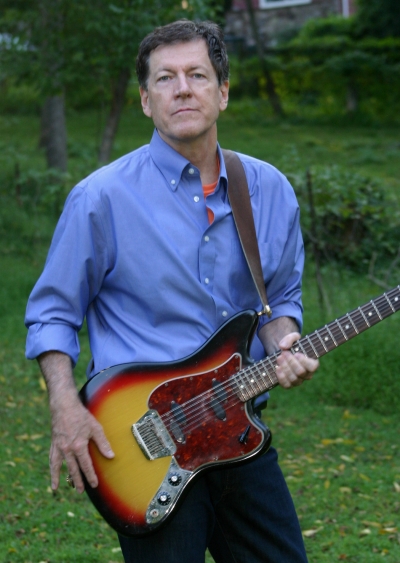
Jonathan and electric guitar
JS: In 2014, I began teaching myself how to play piano so I could compose/express music inside me that could not be adequately expressed via my guitars. (I’ve played guitar for 57 years.) I brought that music to long-time co-producer Joe Mennonna who “flowered” it. He embellished, created greater octave action, and additional piano flourishes that my chicken-scratch piano fingers could not execute. Joe brought depth, experience, and brilliance to each song. He plays more than 30 musical instruments. He’s a Yale graduate and college professor who’s toured with many famous bands. He has perfect pitch. He’s such a talented musician and arranger, his musical friends refer to him as a “freak of nature.”
Leslie Chew played some electric guitars and mastered the albums. Rodney joined after the music was made.
KP: There always seems to be quite a bit of piano on the albums. Who plays the keys? (I just had to get that in there!)
JS: That would be Sir Joseph Mennonna. 100%!
KP: Before you founded Force For Good, you wrote and released a series of four albums that featured music about American heroes. What inspired you to do that?
JS: My parents and some of my grandparents were teachers. I was making kids music in school assembly programs and wanting to leave my audiences with more than just a smile. I wanted to upgrade from entertainer to educating entertainer. I was (and still am) a big fan of Steven Covey’s book, Seven Habits of Highly Effective People, a book about character. In 1994, I read about a survey in America where children had been asked “Who is your hero?” Their Top-10 results included cartoon characters and obnoxious athletes! “Where is Ben Franklin on this list?” I asked. I decided to research and sing the praises of real heroes. I became America’s greatest (i.e.: only) expert on hero songs for children.
KP: Who are some of the heroes you featured?
JS: Susan B. Anthony, Frederick Douglass, Eleanor Roosevelt, George Washington, Harriet Tubman, Neil Armstrong, Clara Barton, Abraham Lincoln, Mary McLeod Bethune, Cesar Chavez…. 40 in all.
KP: Wonderful! You must have traveled all over the country performing children's concerts to do between 5000 and 6000 of them. Do you still do those?
JS: I did. I do.
KP: How did you select the heroes you wrote and sang about?
JS: I have a degree in psychology. I chose the heroes from whom I could teach CHARACTER – the importance of honesty, compassion, good citizenship, courage and perseverance. Each person was a consistent hero whose words and actions were an expression of their core heroic beliefs. They weren’t just heroes for a day. They were heroes because of their visions, their generosity, and their persistence.
KP: Do you plan to release any more of those albums?
JS: No. But you never know. The last heroes album required a year of research, a year of songwriting and about a year of recording. I read over 100 books about those 10 people before I wrote the first song.
KP: I can imagine!
Let's back up and find out some more about your life so far. Where were you born and where did you grow up?
JS: Central New Jersey is where I grew up. I attended a college prep school – The Peddie School - and graduated from Bucknell University in central PA.
KP: Are any other members of your family musicians?
JS: Well, my brother was in a band in 8th grade that released a 45 RPM single. Remember them? But he went on to become a PHD economist. So, no. As a musician, I always felt like I was the black sheep in the family.
KP: How old were you when you got involved with music?
JS: My first professional gig was in 1972. I made $25 playing an acoustic 6-string guitar and singing in a band at Bucknell.
KP: How old were you when you wrote your first song?
JS: Late teenager. The song stank and is long gone. But old songwriters never die. They just decompose.
KP: Haha! Were you a music major in college?
JS: I took one music class at Bucknell. Shame on me. But I had no idea until after I graduated that I could muster up the courage to strike out and invent myself as a musician. You have to understand – I was the world’s most shy kid, and, although I loved music, I had no confidence while in college that I could entertain an audience, let alone actually make money playing music.
KP: Oh, I understand that completely! That's why I was an art major!
Have you always made a living being a musician?
JS: Pretty much since graduating from Bucknell in 1974, although for the first 10 or so years after college, I literally lived in poverty. I didn’t feel poor because 1) I had wonderful parents (i.e.: a security net) who would have taken me back in, and 2) I was “livin’ the dream.”
KP: Which instruments do you play?
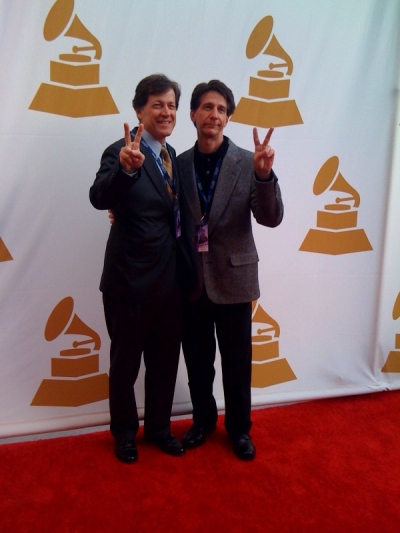
Jonathan and Leslie Chew at the Grammys.
JS: I started on a 6-string guitar but since college, my main instrument has been the 12-string guitar. I have electric and acoustic 12-strings. In 2014, I took up piano.
KP: About how many songs have you written?
JS: A few hundred.
KP: When did you release your first album and how many albums have you released?
JS: Angels Everywhere, my first album, was released on Green Mountain Records in VT in 1978. Innocence is my 12th album.
KP: I understand you've been Grammy-nominated. When and which album(s)?
JS: In 2009, my album American Heroes #3 was nominated for a Grammy in the Best Children’s Album category. I will always remember exactly where and when I was the moment I was told this life-changing news. The experience of attending the Grammys was a great honor. I’ve since become a strong advocate for the Recording Academy and its important missions.
KP: Has anyone else recorded your songs?
JS: The Lettermen, a pop vocal group most popular in the 1960s, recorded two of my songs and titled an album after one of them: To a Friend.
KP: I remember them! Who and what have been the biggest influences on your music?
JS: Yes, The Who! I love the power chords of Pete Townshend. And I grew up loving British rock bands Jethro Tull (inspiring original writing by Ian Anderson) and YES (John Anderson’s angelic vocals, Steve Howe’s gymnastic guitar playing, the liberating flow of their music and the uplifting lyrics). In the 1970s, I was a big fan of song poet Don McLean. I used to perform most of his American Pie album on my acoustic guitar. Songwriter Jimmy Webb and recording artist Art Garfunkel were a huge influence. Since the 1990s, I’ve been highly influenced by David Foster (writer, producer and pianist). My all-time favorite recording artist is Nik Kershaw. Nik’s songwriting sensibilities take me no other songwriter can. It’s been a mystery to me that he’s not more famous. I listen to his music, even his 2021 release, Oxymoron, and I think, “Isn’t it obvious how creative and unpredictable, yet perfectly-placed his melodies, chords and lyrics are? Why isn’t the whole wide world hearing what I’m hearing in this guy?!”
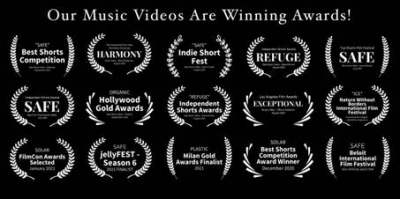
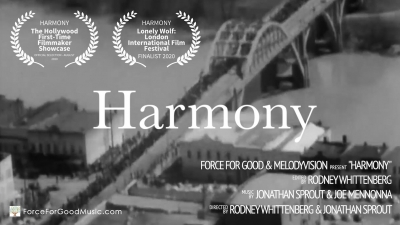
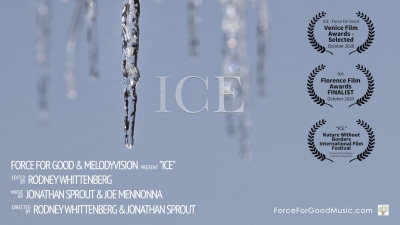
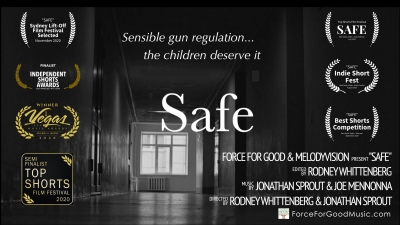
KP: Sadly, there are many, many enormously talented and artistic people who will never be widely known. I see (and hear!) it all the time.
Who are some of your favorite musical artists?
JS: In addition to those listed above, the past six years, I’ve obsessed over the music of Beethoven, Brahms, Chopin and now Mozart. Author Jan Swafford wrote definitive biographies of all but Chopin, and I’ve spent years absorbing myself in the lives and creations of each. My favorite piece in all of music is Beethoven’s Fifth Symphony, though I dare not listen often because every time I hear it, the music repeats itself in my consciousness for weeks after, completely contaminating my own ability to compose with originality.
KP: I understand that you are living in Bryn Gweled where you can live pretty much "off the grid." Tell us about that.
JS: Bryn Gweled is an oasis just 17 miles north of Philadelphia. We’re an intentional community of 75 homesteads, each with about 2 acres of land plus 90 acres of common forest land. We are good neighbors while having the physical space to enjoy the sense of being in our own natural settings. I’ve chosen to convert my home into a low-impact house. I have a well and septic system, high-efficiency heat pumps, and I heat mostly with a wood stove (all the wood I burn comes from Bryn Gweled that I have personally sawed and split). My home’s only utility is electricity, and the solar panels on my roof put more into the grid than I take out. Thus, I live “virtually off the grid.” I also own a plug-in vehicle. I’ve created this low-carbon lifestyle because I believe things like this are necessary for our continued existence. It’s a responsibility.
KP: That's really inspiring! How long have you lived there?
JS: Seven years.
KP: What's next for you and Force For Good?
JS: We’ll continue premiering our song-films every other month into October 2022. I’ve composed the third album of Force For Good songs and await the end of COVID restrictions so I can resume recording “in the studio.”
KP: If you could have any three wishes, what would they be?
JS: 1. (Global) I wish people would accept and respect each other, and get along, aware that there are better ways to resolve arguments than by fighting.
2. (Global) I wish people would creatively lessen the human impact on Earth and reverse climate change.
3. (Personal) I wish for the gifts and talent to compose music and films that will be enjoyed by people for centuries to come.
KP: Is there anything else you'd like to talk about?
JS: I would be remiss not to mention the two critical co-visionary remaining members of the FFG team. Since 1980, Leslie Chew has co-produced albums with me, been in a band with me, helped with sound engineering, mixing and mastering expertise, and is now supporting FFG’s social media and website needs. Lisa Gage joined the team four months ago to help with publicity.
We have a motto at
Force For Good: "Being good is nice. Doing good is better. Uplifting those who do good is best."
Please join us.
Many thanks to Jonathan Sprout for taking the time for this interview! To learn more about Jonathan and Force For Good, check out
his website and
Artist Page here on MainlyPiano.com.
Kathy Parsons
March 2021

